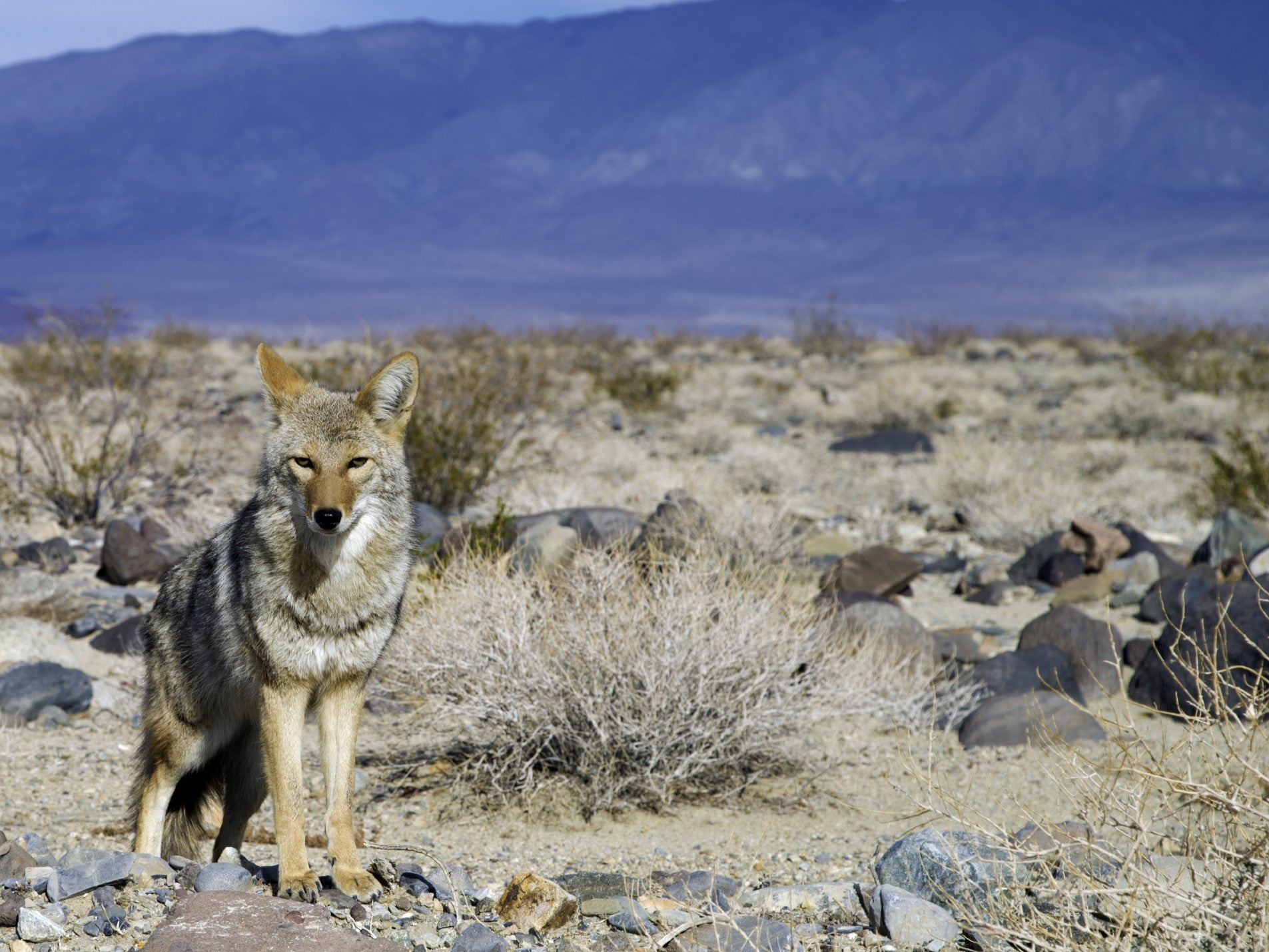Man fights to be reunited with emotional support coyote: 'This is a dog in a coyote's body'
Matthew Stokes claims animal, which he raised from a pup, helps with depression and anxiety

Your support helps us to tell the story
From reproductive rights to climate change to Big Tech, The Independent is on the ground when the story is developing. Whether it's investigating the financials of Elon Musk's pro-Trump PAC or producing our latest documentary, 'The A Word', which shines a light on the American women fighting for reproductive rights, we know how important it is to parse out the facts from the messaging.
At such a critical moment in US history, we need reporters on the ground. Your donation allows us to keep sending journalists to speak to both sides of the story.
The Independent is trusted by Americans across the entire political spectrum. And unlike many other quality news outlets, we choose not to lock Americans out of our reporting and analysis with paywalls. We believe quality journalism should be available to everyone, paid for by those who can afford it.
Your support makes all the difference.A man who claims a young coyote is his emotional support animal is locked in a battle with a local wildlife centre, who want to return the pup to the wild.
Matthew Stokes said he acquired the coyote – which he has named Drifter – when it was left behind by its family in his backyard in Iowa.
The orphaned creature was “looking for a pack”, Mr Stokes told a local newspaper. “I became his pack. This animal is a dog in a coyote's body.”
At the time he found Drifter, Mr Stokes was suffering from a bone infection in his foot and feared he might even lose it.
"I had to take care of myself. There was nobody else there to care for him. He saved my life. And I saved his life too," he said.
But despite Mr Stokes adopting the coyote as his emotional support animal, others nearby are unimpressed.
A neighbour caught Drifter while he roamed the area in October and gave him to the nearby WildThunder Wildlife and Animal Rehabilitation and Sanctuary.
The centre now intend to return the coyote to the wild, where they believe he belongs.
“This is not an emotional support animal. This is a wild coyote that he took out of the wild and decided to make a pet," said Tracy Belle, director of the sanctuary.
Although the young animal seems docile, as he grows up his natural predatory instincts will begin to kick in. "This is not a domestic coyote, this is a wild animal," Belle said.
But Mr Stokes is continuing to fight to be allowed to keep Drifter, who he claims is a vital part of his therapy for anxiety and depression.
He told the newspaper he had been given a letter by his doctor explaining the coyote is a legitimate emotional support animal, and is in the process of applying for a government licence to keep a dangerous animal.
Although attacks by coyotes on humans are rare, there have been hundreds of recorded encounters in the United States over the past 30 years. Most of the attacks take place in southern California, where the Los Angeles suburbs blend into the countryside.
Mr Stokes is not the first person to claim an unorthodox beast as an emotional support animal. Last year, a woman arrived at an airport with her emotional support peacock, only for the airline to forbid her to fly with it even after she offered to buy the large bird its own ticket.
The phenomenon has grown so much many airlines and other organisations have been forced to create rules about which animals can be brought inside as therapy and which cannot.
However, despite the growing popularity of emotional support animals in recent years, there is limited evidence they have any positive impact on mental health.
Molly Crossman, a psychologist at Yale University who published a review of the scientific evidence in 2016, said there had not been any real research into emotional support animals, and that even the studies which looked at pets were inconclusive.
Indeed, it is possible they even hamper people’s recovery. “Basically, in treatments for anxiety that work, we ask people to face their fears. We work with them to gradually approach the things they’ve avoided. These treatments work really well,” she told the Vox news website.
“If someone who’s very afraid of heights is only able to approach heights with their emotional support dog, they might start to say ‘Wow, I can do this because of Buddy.’ While Buddy makes the fear better in the short term, he’s making it worse in the long term.”
Jeffrey Younggren, a psychologist at the University of New Mexico, is trying to create a rigorous standard therapists can use when providing patients with a certificate stating their animal is for emotional support.
He said the trend was getting out of hand. “An ESA is an example of a well-intended idea that has metastasised and developed into a world of nonsense," he told Science Daily.
Join our commenting forum
Join thought-provoking conversations, follow other Independent readers and see their replies
Comments